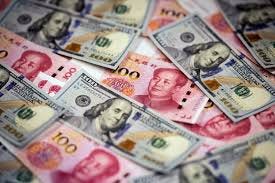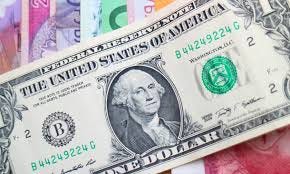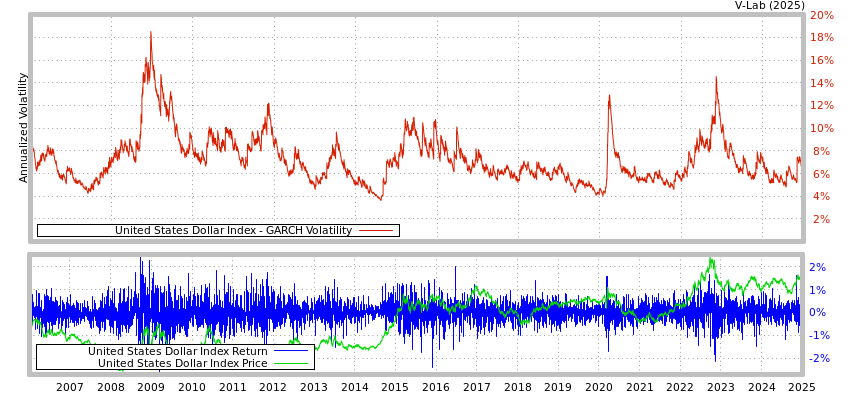In this insightful video, Antonio Valdéz offers a comprehensive analysis of the global economy, with a particular focus on the strength of the U.S. dollar. Drawing from his vast experience in financial analysis, Antonio delves into the current dynamics influencing currency markets and provides a detailed breakdown of how the dollar's rise is shaping global trade, inflation, and economic strategies. His reflections are grounded in real-world observations, offering viewers valuable perspectives on the implications of this financial shift.
The Strength of the Dollar and Global Financial Stability
Antonio Valdéz begins his economic analysis by discussing the global implications of the strength of the dollar, particularly its role in the ongoing stability of the world economy. He explains how the dollar’s dominance impacts both international trade and individual financial strategies. "What I ask God for is that the world stays in order, that China stays in order, and that the U.S. stays in order for a while longer. This will allow me to finish paying off my house and organize my finances," Valdéz states. This quote underscores his concern for the continued strength of the dollar as a cornerstone of financial planning, as disruptions in its value could derail personal and global economic stability.
He also recognizes the challenges that arise from the dollar's strength, particularly for those in countries with weaker currencies. Valdéz stresses that an unstable dollar could lead to increased costs for imported goods, making financial planning more difficult for those dependent on global trade. His focus on the dollar's role in sustaining economic structures reveals how deeply its strength influences both personal wealth-building and global trade dynamics. "I just ask for the minimum from the state, to ensure that basic services and security are functioning so I can continue building my financial stability in this economic environment," he says, underlining the need for a stable environment for prosperity, which is often contingent on the dollar’s strength.
The Impact of Dollar Fluctuations on Personal Financial Strategies
In his analysis, Valdéz highlights how fluctuations in the dollar’s value can affect individual financial strategies, especially for those living outside the U.S. He explains that when the dollar is strong, people holding foreign currencies may face challenges in maintaining purchasing power. "When the dollar is strong, it puts pressure on people who have savings or investments in other currencies. The purchasing power of these people decreases," Valdéz explains. This statement reflects his concern for the wider implications of the dollar's strength on personal wealth, particularly for individuals with assets that are not directly tied to the U.S. dollar.
He further emphasizes that those who do not actively manage their finances may find themselves at a disadvantage when the dollar strengthens. "I advise people to understand how the dollar moves, how currencies relate to it, and to make investments that protect their wealth when the dollar fluctuates," he suggests. Valdéz advocates for a proactive approach, encouraging individuals to diversify their investments and stay informed about the dollar’s movements to mitigate financial risk. This advice underscores the central role the dollar plays in shaping personal financial decisions, particularly in international markets.
China, the U.S., and the Dollar’s Global Influence
Valdéz also connects the dollar’s strength to the ongoing economic dynamics between the U.S. and China. He observes that China is accumulating resources like metals and food, which could impact the global economy if the dollar weakens. "China is storing a lot of raw materials, food, and petroleum. If the dollar loses strength, this could shift global trade dynamics," Valdéz remarks. This highlights his belief that the strength of the dollar directly affects international trade and geopolitical relations, with countries like China positioning themselves to potentially challenge the dollar’s dominance.
He also notes that the U.S. is losing its industrial edge, which could contribute to challenges for the dollar moving forward. "The U.S. is losing ground in the industry, and that will have consequences for the dollar's value and the strength of the American economy," Valdéz says. This is a warning that the dollar’s dominance may not be guaranteed, and shifts in global production could weaken its global standing. He views the strength of the dollar not just as a financial indicator, but as a reflection of the broader geopolitical landscape.
Financial Independence and the Dollar’s Role in Wealth-Building
For Valdéz, the dollar’s strength is a central consideration in the quest for financial independence. He emphasizes the importance of protecting wealth in the face of potential dollar fluctuations, especially as governments become more involved in regulating and taxing investments. "If the dollar loses strength, it's crucial to have a financial strategy that keeps your wealth protected," Valdéz asserts. This underscores the need for individuals to not only accumulate wealth but also to safeguard it against external economic forces, particularly those driven by shifts in currency values.
He suggests that individuals should aim for financial independence by creating wealth that is less susceptible to the dollar’s fluctuations. "I can always shift my focus to coconut water production or other businesses if the dollar becomes too volatile. There’s no shame in finding new avenues to ensure financial security," Valdéz shares. This reflects his belief that adaptability is key in navigating an economy where the dollar’s strength plays a central role. His emphasis on self-reliance aligns with his broader philosophy of taking control of personal finances and diversifying sources of income to hedge against dollar-related risks.
Minimizing the Impact of the Dollar’s Volatility on Investments
Valdéz advises those seeking to invest or relocate assets internationally to consider how the dollar’s strength could impact their plans. "If you’re moving assets from one country to another, make sure you understand the fluctuations of the dollar. Its strength can significantly affect your investments," he warns. This advice is aimed at individuals looking to make cross-border financial decisions, stressing the need for awareness of the dollar’s role in international asset management.
Furthermore, Valdéz encourages individuals to become well-versed in the mechanisms of the dollar and other global currencies to better prepare for investment opportunities. "Learning how the dollar moves, how to protect your assets when its value changes, that’s essential knowledge for anyone serious about investing," he concludes. This advice places the dollar at the center of his financial guidance, making it clear that understanding the currency’s movements is essential to building a successful financial future.
The Dollar’s Role in Global Economic Shifts and Long-Term Strategy
In his concluding thoughts, Valdéz reflects on the potential risks and rewards tied to the dollar’s future. He notes that if the dollar weakens, it could lead to significant economic disruptions, but it also presents opportunities for those who are prepared. "I’m making sure that I can adapt if the dollar weakens. I don’t want to face any financial shocks, and that’s why I’m preparing my wealth for any economic shifts," he says. This statement encapsulates his broader strategy of financial resilience, where understanding the dollar’s strength and preparing accordingly is a key part of long-term success.
He urges his audience to take control of their financial future by staying informed about the dollar’s global role. "If the dollar weakens, I want to be ready. Financial independence requires understanding the dynamics of the dollar and preparing accordingly," Valdéz emphasizes. This final piece of advice reinforces his focus on the dollar, demonstrating how it drives both his personal financial strategy and his broader economic analysis.









